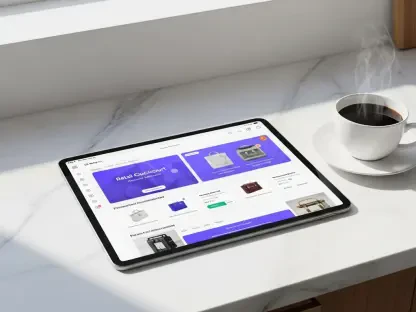Retail store staff play a crucial role in shaping the customer experience and ensuring the smooth operation of the store. From the moment a customer walks in until they make a purchase, the skills of the retail staff can make a significant difference. This article delves into the top skills that are essential for retail store staff to succeed.
Retail environments are dynamic and require a diverse set of skills. These skills can be broadly categorized into customer service, sales and persuasion, organizational and time management, technical and POS skills, visual merchandising, and teamwork and collaboration. Each category encompasses specific competencies that contribute to the overall effectiveness of retail operations.
Customer Service Skills
Customer service skills are essential for creating positive interactions and building long-term relationships with clients. Key skills include effective communication, active listening, empathy, problem-solving, and patience. Providing excellent customer service involves understanding customer needs, addressing their concerns promptly, and delivering solutions that exceed their expectations. Training and continuous improvement in these areas can lead to higher customer satisfaction and loyalty.
A Friendly Attitude and Helpfulness
A friendly attitude is fundamental in retail. Staff who are approachable and welcoming can create a positive first impression, making customers feel comfortable and valued. This friendliness should be coupled with a helpful demeanor, where staff are eager to assist customers with their needs and queries. Being resourceful and knowing where to find answers if they don’t have them immediately is also crucial. When customers encounter staff who genuinely want to help, it enhances their shopping experience, increasing the likelihood of repeat visits and positive word-of-mouth referrals.
Moreover, helpfulness goes beyond merely answering questions or directing customers to product locations. It involves anticipating customer needs and offering proactive assistance. For instance, if a customer seems unsure about what they need, a helpful staff member can inquire about their preferences or intended use for a product, guiding them toward suitable options. This level of service demonstrates a commitment to ensuring customers find exactly what they’re looking for, further strengthening their satisfaction and loyalty to the store.
Empathy and Patience
Empathy and patience are essential qualities in building and maintaining strong relationships. By understanding and sharing the feelings of others, individuals can create deeper connections and foster mutual respect. Patience allows individuals to navigate challenging situations calmly and thoughtfully, leading to better problem-solving and conflict resolution. Together, empathy and patience contribute to a more harmonious and supportive environment, whether in personal relationships, workplaces, or communities.
Empathy allows retail staff to understand and relate to customers’ emotions and motivations. This understanding helps in offering suitable suggestions and making effective sales pitches. Patience is equally important, especially when dealing with customers who may need repeated explanations or are unsure of what they want. Staff who exhibit patience can handle such situations gracefully, ensuring a positive customer experience. Empathy and patience together create a supportive environment where customers feel respected and understood, fostering a trusting relationship between the staff and the customers.
Additionally, empathy enables staff to identify with customers’ frustrations and challenges, allowing for more personalized and effective problem-solving. When retail staff can put themselves in the shoes of the customer, they are better equipped to address concerns and offer compassionate solutions. Patience complements this by allowing staff to remain calm and composed, even when faced with difficult or demanding situations. By maintaining a patient demeanor, staff can defuse potential conflicts and create a more pleasant shopping experience, encouraging customers to return to the store.
Active Listening
Active listening is a communication technique that requires the listener to fully concentrate, understand, respond, and then remember what is being said. This practice is crucial in various settings, such as personal relationships and professional environments, to ensure effective communication and foster better understanding. By giving the speaker your full attention and providing feedback, you can demonstrate empathy and build stronger connections.
Active listening involves paying full attention to customers’ words and body language. This skill ensures that staff can accurately address customer needs and follow up with personalized suggestions. By truly listening, staff can build stronger relationships with customers and provide more tailored assistance. Active listening is not just about hearing what the customer says, but also understanding the underlying needs and preferences that may not be explicitly stated. This deeper level of engagement helps staff to offer more relevant and effective recommendations.
Furthermore, active listening fosters a sense of being heard and valued among customers. When customers feel that their concerns are genuinely being considered, they are more likely to trust the advice and suggestions provided by store staff. This trust can translate into increased customer satisfaction and loyalty. Additionally, by actively listening to customer feedback, staff can identify common issues or areas for improvement, allowing the store to continuously enhance its service and offerings. Overall, active listening is a critical component of exceptional customer service that can significantly impact the success of a retail store.
Sales and Persuasion Skills
Resilience and Ease of Persuasion
Resilience is the ability to adapt to various customer reactions and objections while maintaining a composed demeanor. This skill is essential in handling challenging situations without getting flustered. Ease of persuasion involves addressing customer objections and highlighting the benefits of products without pressuring them. This balance helps in making sales while ensuring customers feel respected. A resilient retail staff member can stay positive and motivated even in the face of rejection or difficult interactions, turning potential setbacks into opportunities for growth and improvement.
Moreover, resilience allows staff to bounce back quickly from negative experiences and maintain a high level of performance. This consistent dedication to providing excellent service can leave a lasting impression on customers, even those who may have initially been hesitant or resistant. Persuasion, when done effectively, encourages customers to consider new possibilities and make informed decisions without feeling overwhelmed or coerced. By combining resilience with ease of persuasion, retail staff can create a supportive and persuasive environment that promotes customer satisfaction and encourages repeat business.
Storytelling Skills and In-depth Product Knowledge
Storytelling skills can make sales pitches more engaging and compelling. By using stories to convey the benefits and features of products, staff can capture customers’ interest more effectively. In-depth product knowledge is also crucial. Staff should have a thorough understanding of the product catalog, including features and benefits, to answer customer queries and make informed sales pitches. When staff can confidently share detailed information and unique selling points through storytelling, it helps build credibility and trust with customers.
Additionally, storytelling can create a memorable shopping experience that resonates with customers on an emotional level. By weaving narratives that connect products to customers’ lives or experiences, retail staff can make a more significant impact, encouraging customers to visualize how a product fits into their own life. This approach not only boosts the appeal of the products but also enhances the overall shopping experience. In-depth product knowledge supports this by ensuring that staff can provide accurate and comprehensive information, addressing any questions or concerns that customers may have. Together, storytelling and product knowledge form a powerful combination that drives sales and fosters customer loyalty.
Strong Communication Skills and Understanding of Unified Commerce
Clear articulation of messages, effective greetings, and responses to customer queries are vital aspects of strong communication skills. Additionally, understanding unified commerce ensures consistent customer experiences across online and offline channels. Staff should be able to suggest items based on purchase history and track loyalty points seamlessly. Strong communication skills help build rapport with customers, making them feel valued and understood, which is crucial for a positive shopping experience.
Unified commerce understanding is becoming increasingly important as customers’ shopping behaviors evolve. Retail staff must be proficient in navigating both physical and digital touchpoints, ensuring a seamless and integrated experience for customers. This includes being knowledgeable about online inventory, promotions, and loyalty programs. By effectively communicating these aspects to customers, staff can provide a cohesive and satisfying shopping journey. Furthermore, strong communication skills enable staff to address any issues or discrepancies that may arise, ensuring that customers feel supported and appreciated regardless of the channel they choose to shop through.
Organizational and Time Management Skills
Good Time Management and Ability to Multitask
Good time management is vital in retail, where tasks are often time-sensitive. Punctuality and the ability to manage time effectively ensure smooth store operations. The ability to multitask is also essential, as staff often need to handle multiple customer queries and tasks simultaneously without losing focus. Effective time management allows staff to balance customer service with other responsibilities, such as restocking shelves, processing transactions, and maintaining displays, ensuring that all aspects of store operations run efficiently.
Moreover, staff who excel in time management can prioritize tasks based on urgency and importance, preventing bottlenecks and disruptions in the workflow. This skill is particularly crucial during peak shopping times, such as holidays or sales events, when the store is bustling with activity. Multitasking ability enables staff to switch between tasks seamlessly, providing quick and efficient service to multiple customers at once. By mastering these organizational skills, retail staff can enhance their productivity, minimize errors, and contribute to a well-organized and pleasant shopping environment for customers.
Prioritization and Planning
Effective prioritization and planning are essential for achieving project success and meeting deadlines.
Prioritization involves assessing which tasks are most critical and addressing them first, especially during peak times. Effective planning and scheduling of daily activities ensure that time is allotted correctly for various tasks without compromising customer service. This balance is key to maintaining efficient store operations. When retail staff can prioritize effectively, they can focus on tasks that have the most significant impact on the store’s success, such as assisting high-value customers or managing inventory during crucial business hours.
Planning also involves anticipating future needs and preparing accordingly. This could mean scheduling staff shifts to ensure adequate coverage during busy periods or coordinating with suppliers to maintain optimal stock levels. By having a proactive and strategic approach to planning, retail staff can prevent potential issues and maintain smooth and efficient operations. Effective prioritization and planning not only optimize store performance but also enhance the overall customer experience by ensuring that staff are available and prepared to meet their needs promptly and effectively.
Technical and POS Skills
Basic Computer Skills and Retail Industry Knowledge
Basic computer skills are necessary for tasks like emails and familiarity with POS and CRM systems. Retail industry knowledge, including understanding product comparisons and industry standards, is also important. This knowledge helps staff provide accurate information and better service to customers. In today’s tech-driven retail environment, proficiency with basic computer functions enables staff to efficiently manage various tasks, from processing transactions to accessing customer data and managing inventory systems.
Additionally, having a solid understanding of the retail industry allows staff to offer insightful comparisons and recommendations. Knowledge of industry trends and standards can also help staff stay informed about the latest products and services, making them more effective in their roles. This expertise not only enhances the credibility of the staff but also instills confidence in customers who seek reliable information before making a purchase. Overall, the combination of computer skills and industry knowledge equips retail staff to handle a wide range of responsibilities and deliver exceptional customer service.
Math and Money Skills
Math and money skills are essential for handling transactions, working cash registers, and managing discounts and percentages. Staff should be comfortable with basic arithmetic to ensure accurate transactions and avoid errors. Accuracy in financial transactions is crucial for maintaining trust with customers and ensuring the store’s financial integrity. Mistakes in handling money can lead to customer dissatisfaction and potential financial losses, underscoring the importance of these skills.
Furthermore, math skills come into play when staff calculate discounts, apply promotional codes, or manage return and exchange processes. These tasks require precise calculations to ensure that customers receive the correct pricing and that the store’s accounting remains accurate. Strong math and money skills also enable staff to identify discrepancies and address them promptly, maintaining a smooth and error-free checkout process. Ultimately, proficiency in handling financial transactions contributes to a seamless and positive shopping experience for customers.
Retail Tech Experience
Proficiency with modern retail technologies, such as POS systems, mobile payment processing, digital catalogs, and inventory management tools, is crucial. These technical skills help in efficient store operations and enhance the overall customer experience. Familiarity with advanced retail technologies allows staff to process transactions swiftly, manage inventory accurately, and provide customers with real-time information about product availability and promotions.
Moreover, tech-savvy staff can assist customers with mobile payment options, streamlining the checkout process and reducing wait times. This convenience is becoming increasingly important as more customers prefer contactless and mobile payment methods. Additionally, using digital catalogs and inventory management tools can help staff provide detailed product information and locate items quickly, improving service efficiency and customer satisfaction. In an increasingly digital world, technical proficiency in retail technologies is vital for staying competitive and meeting customer expectations.
Visual Merchandising Skills
Product Styling and Display Skills
Crafting eye-catching displays that draw customer interest and complement the overall store theme is a key aspect of visual merchandising. Staff should have the skills to create appealing arrangements that highlight product features and align with brand guidelines. Effective product styling can significantly influence customer buying decisions by showcasing products in an attractive and accessible manner. Well-designed displays can capture customer attention, encourage exploration, and ultimately drive sales.
Additionally, product styling involves maintaining the visual appeal of displays over time. This includes regularly updating and reorganizing displays to keep them fresh and engaging. Staff with strong visual merchandising skills can identify opportunities to enhance the store’s aesthetic appeal, creating a more enjoyable shopping environment. By focusing on product presentation, staff can enhance the perceived value of merchandise and create a cohesive and inviting store atmosphere that attracts and retains customers.
Creativity and Understanding Consumer Psychology
Creativity is essential for designing attractive displays that capture customers’ attention. Understanding consumer psychology helps in designing displays that enhance the likelihood of purchases. By leveraging knowledge of customer behavior, staff can create more effective merchandising strategies. For example, placing high-demand or seasonal items at eye level or near the entrance can increase visibility and draw customers into the store. Understanding color theory, spatial arrangement, and the impact of lighting can also enhance the overall effectiveness of visual merchandising efforts.
Moreover, creativity allows staff to adapt displays to reflect current trends, holidays, and promotions, keeping the store’s appearance relevant and engaging. By continually refreshing and innovating display designs, staff can maintain customer interest and encourage repeat visits. An understanding of consumer psychology further enables staff to anticipate customer needs and preferences, tailoring displays to align with shopping habits and motivations. This combination of creativity and psychological insight is key to creating compelling and effective visual merchandising that drives sales and enhances the overall shopping experience.
Data-Driven Approach
Using sales data to optimize display strategies and focus on top-performing products is a data-driven approach to visual merchandising. This method ensures that displays are not only visually appealing but also strategically designed to boost sales. By analyzing sales data, staff can identify trends, track the performance of various products, and adjust displays to highlight bestsellers and high-margin items. This targeted approach maximizes the impact of visual merchandising efforts, ensuring that key products receive the attention they deserve.
Additionally, a data-driven approach allows staff to experiment with different display configurations and measure their effectiveness. By continuously evaluating and refining display strategies based on sales data, staff can optimize product placement and presentation, driving higher sales and improving inventory turnover. This analytical approach to visual merchandising ensures that decisions are informed by concrete evidence, reducing guesswork and enhancing the overall effectiveness of the store’s marketing efforts. Ultimately, leveraging data in visual merchandising enables retail staff to create more compelling and profitable store displays.
## Teamwork and Collaboration SkillsDeveloping exceptional teamwork and collaboration skills is essential for success in both professional and personal environments. Working effectively as part of a team involves communication, flexibility, and a willingness to cooperate with others to achieve shared goals. It's important to actively listen to your teammates, respect diverse viewpoints, and contribute your unique strengths to the collective effort. By fostering a positive and inclusive atmosphere, teams can enhance productivity, solve problems more efficiently, and create innovative solutions. Additionally, collaboration can lead to valuable learning experiences and personal growth, as individuals can gain new perspectives and improve their interpersonal skills through interaction with others.Honesty and Reliability
Building a trustworthy team dynamic is crucial for effective store operations. Staff who are honest and reliable create a foundation of trust within the team, ensuring that everyone can depend on each other to fulfill their responsibilities. Trustworthiness is particularly important in retail environments, where staff must work closely together to manage tasks, address customer needs, and maintain store standards. When team members know they can rely on each other, it fosters a positive and collaborative work environment.
Moreover, honesty and reliability contribute to a culture of accountability. Staff who consistently demonstrate these qualities set an example for others, encouraging a commitment to integrity and excellence across the team. This culture of trust and accountability not only enhances team cohesion but also positively impacts customer interactions. Customers are more likely to trust and feel comfortable with staff who exude reliability and authenticity, leading to a better overall shopping experience and increased customer loyalty.
Eagerness to Learn and Willingness to Adapt
Adaptable staff who are enthusiastic about learning new products, policies, and processes can respond more efficiently to customer needs. In the ever-evolving retail landscape, the ability to quickly grasp new information and adapt to changes is essential for maintaining high levels of service. Staff who are eager to learn are more likely to stay updated on product offerings, industry trends, and technological advancements, making them better equipped to assist customers and perform their duties effectively.
Willingness to adapt is equally important, as it enables staff to handle unexpected situations and shifts in store operations smoothly. Whether it’s adjusting to changes in inventory, accommodating new promotions, or managing customer flow during busy periods, adaptable staff can navigate these challenges with confidence and ease. This flexibility ensures that the store remains efficient and responsive to customer needs, even in dynamic and fast-paced environments. By fostering a culture of continuous learning and adaptability, retail teams can maintain a high standard of service and stay ahead of industry developments.
Physical Fitness
Managing the physically demanding aspects of retail is essential for maintaining efficient store operations. Retail staff often engage in tasks such as restocking shelves, arranging displays, and assisting customers with heavy items. Physical fitness enables staff to perform these duties effectively without risking injury or fatigue. Maintaining a good level of physical fitness is particularly important for ensuring that staff can keep up with the demands of their roles, which often require prolonged periods of standing, walking, and lifting.
Moreover, physically fit staff are less likely to experience health issues that could impact their performance and attendance. Ensuring that staff are physically prepared for their roles contributes to a dependable and resilient team. Physical fitness also supports overall well-being, promoting higher energy levels and better mental focus. By encouraging and supporting physical fitness among staff, retail stores can optimize productivity, enhance the quality of customer service, and maintain a healthier and more vibrant workforce.
Conclusion
Retail store staff are instrumental in shaping the customer experience and ensuring the store operates smoothly. From the moment a customer walks through the door to the time they make a purchase, the abilities of the retail staff can significantly impact the outcome. This text examines the key skills necessary for retail store staff to excel.
Retail settings are lively and necessitate a wide array of skills. These can be broadly divided into several categories: customer service, sales and persuasion, organizational and time management, technical and POS (point of sale) skills, visual merchandising, and teamwork and collaboration.
Customer service skills are vital for creating a positive shopping experience. Staff must be friendly, approachable, and able to address customer concerns effectively. Sales and persuasion skills are necessary for convincing customers to make purchases and promoting products.
Organizational and time management skills ensure that tasks are completed efficiently and the store remains orderly. Technical skills, particularly with POS systems, are essential for processing transactions accurately and quickly. Visual merchandising involves presenting products in an appealing manner to attract customers and boost sales.
Finally, teamwork and collaboration skills are crucial for ensuring seamless operations and a positive work environment. Each team member’s ability to work well with others contributes to the store’s overall success. By mastering these skills, retail staff can enhance the customer experience and drive the store’s success.









